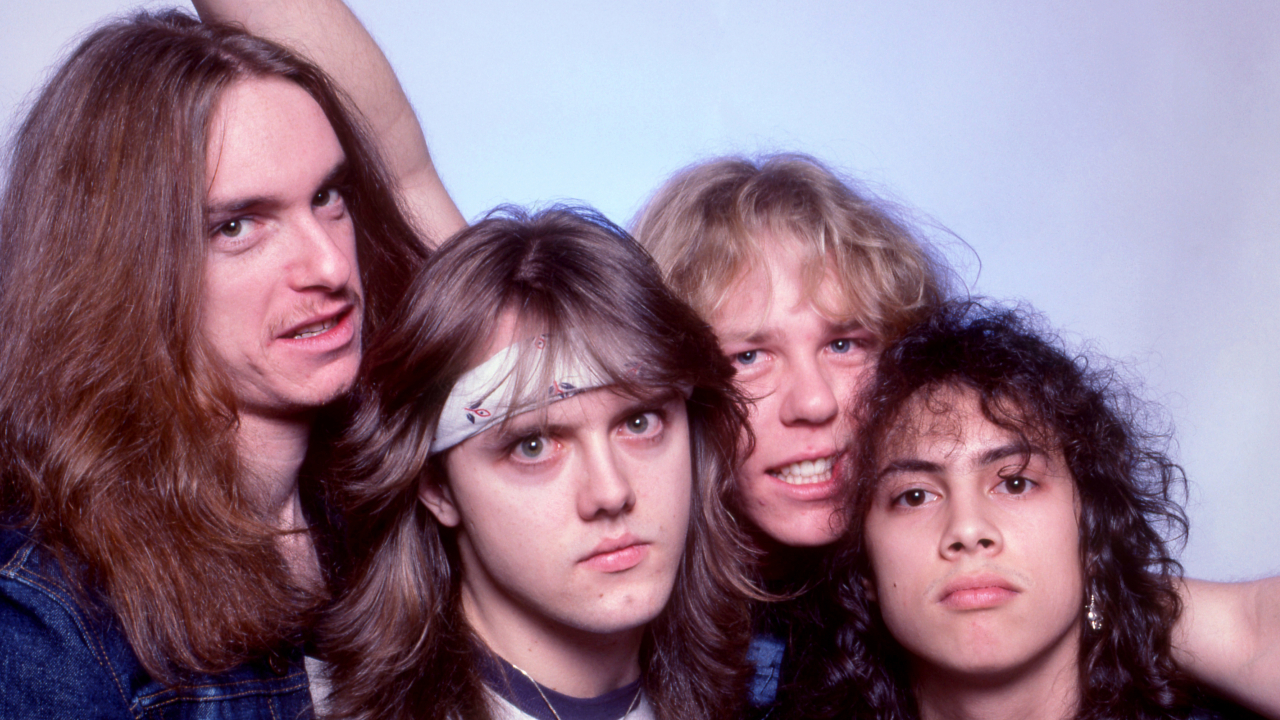“Though Dave Mustaine might claim he wrote Leper Messiah, he didn’t”: The track-by-track guide to Metallica’s Master Of Puppets
From Battery to Damage Inc., here’s the story behind every song on Metallica’s game-changing masterpiece

Select the newsletters you’d like to receive. Then, add your email to sign up.
You are now subscribed
Your newsletter sign-up was successful
Want to add more newsletters?

Every Friday
Louder
Louder’s weekly newsletter is jam-packed with the team’s personal highlights from the last seven days, including features, breaking news, reviews and tons of juicy exclusives from the world of alternative music.

Every Friday
Classic Rock
The Classic Rock newsletter is an essential read for the discerning rock fan. Every week we bring you the news, reviews and the very best features and interviews from our extensive archive. Written by rock fans for rock fans.

Every Friday
Metal Hammer
For the last four decades Metal Hammer has been the world’s greatest metal magazine. Created by metalheads for metalheads, ‘Hammer takes you behind the scenes, closer to the action, and nearer to the bands that you love the most.

Every Friday
Prog
The Prog newsletter brings you the very best of Prog Magazine and our website, every Friday. We'll deliver you the very latest news from the Prog universe, informative features and archive material from Prog’s impressive vault.
Metallica’s 1986 masterpiece Master Of Puppets is clearly a landmark, all-time-classic album – not just in metal, either. Puppets is a release as peerless and essential as anything ever released in the history of popular culture. In its entirety, it’s perfect – but what is it about the individual elements of the album that makes it so special? Here, Metal Hammer presents a deep dive into every track on one of heavy metal’s finest-ever achievements.

Battery
A love letter to the Bay Area thrash scene, Battery has become one of the genre’s most definitive songs: both furiously brutal and insanely fast, yet complex and vast in its scope. it’s made even more impressive by the fact that James Hetfield apparently improvised the song’s classic riff whilst fooling about on his guitar on tour. Covered by everyone from Machine Head and Dream Theater to Sum 41, this opener’s a nad-grabbing demand for attention that hooks you in for the seven other flawless songs to come.
Master Of Puppets
Puppets was one of metal’s most anthemic and essential songs long before it found a second-wind thanks to Stranger Things. Millions of listens down the line, this title track never fails to amaze. James Hetfield’s lyrics about an individual struggling to control their relationship with drugs (“Instead of you controlling what you’re taking and doing, it’s drugs controlling you,” he told Thrasher in 1988) are juxtaposed by brilliantly dizzying riffs. Metallica would run further with the more expansive songwriting ideas, but this remains possibly their most beloved and, dare we say it, best song.
The Thing That Should Not Be
Described by Lars Ulrich as “a great mood changer”, The Thing That Should Not Be marks one of the first times that Metallica truly leaned into the stomping, half-time crunch that would become their calling card post-Black Album. The Thing… also continues their love of cult US writer H.P. Lovecraft’s Cthulhu mythos, telling of a monster that roams the sea. That sci-fi universe had previously inspired the towering instrumental The Call Of Ktulu, which closed the band’s previous album, Ride The Lightning, in 1984.
Welcome Home (Sanitarium)
Welcome Home and later Puppets cut Orion were originally one song, but producer Flemming Rasmussen split it into two during the recording sessions. It was a good call. Having previously dipped into ballad territory with Fade To Black, Metallica continued to mine that approach further here – despite Lars Ulrich not deeming this one to be a proper ballad. Supposedly inspired by One Flew Over The Cuckoo’s Nest, Welcome Home paints a picture of a character incorrectly sectioned. “He feels, from his point of view, that he is sane,” Lars added.
Disposable Heroes
One of the thrashiest and most intense songs on Puppets, Disposable Heroes tells of a young soldier who’s being ordered to the frontline of battle by his superiors. Treatment of vets was a hot topic of conversation in the post-Vietnam America of 1986 and, in the years since, this rager has been adopted by many ex-military activists. Disposable… is also the Metallica song that current bassist Robert Trujillo loves the most. He once told Blabbermouth, “Any time I can hear that particular song, count me in!”
Leper Messiah
Lyrically calling out the hypocrisy of televangelist preachers, Leper Messiah is a choppy, staccato attack. Years later, ex-Metallica guitarist and Megadeth leader Dave Mustaine would claim he wrote much of what you hear – something now-guitarist Kirk Hammett has strongly denied since. “Even though Dave might claim that he wrote Leper Messiah, he didn’t,” Kirk’s said. “There’s maybe a chord progression that was in that song, like, maybe 10 seconds that came from him […] In fact, I remember being in the room when Lars came up with the main musical motif.”
Sign up below to get the latest from Metal Hammer, plus exclusive special offers, direct to your inbox!
Orion
By itself, Orion is an extraordinary piece of music. With context, it’s also heartbreaking. This instrumental marked the final time that fans would hear Cliff Burton’s powerful bass tone at a song’s forefront. It’s since become so renowned as one of the bassist’s finest moments that James has had the notes from the bridge tattooed on his arm. Lars has also claimed Orion’s his favourite Metallica song, telling Metal Castle in 2023: “The emotional component of Orion [is] the Cliff element, and that whole middle piece obviously is beautiful and so unique.”
Damage Inc.
Puppets’ finale was musically inspired by both Deep Purple and Johann Sebastian Bach, while its title comes from a fictional corporation that aims to enslave and destroy humanity. More simply, though, Damage Inc. is one hell of a way for one of the greatest metal albums ever to sprint to a close. It’s a pure thrash charge, and its immense legacy can be measured by the list of broad names that have covered the track, from German thrashers Tankard to underground metallic hardcore legends Shai Hulud.

Stephen joined the Louder team as a co-host of the Metal Hammer Podcast in late 2011, eventually becoming a regular contributor to the magazine. He has since written hundreds of articles for Metal Hammer, Classic Rock and Louder, specialising in punk, hardcore and 90s metal. He also presents the Trve. Cvlt. Pop! podcast with Gaz Jones and makes regular appearances on the Bangers And Most podcast.
